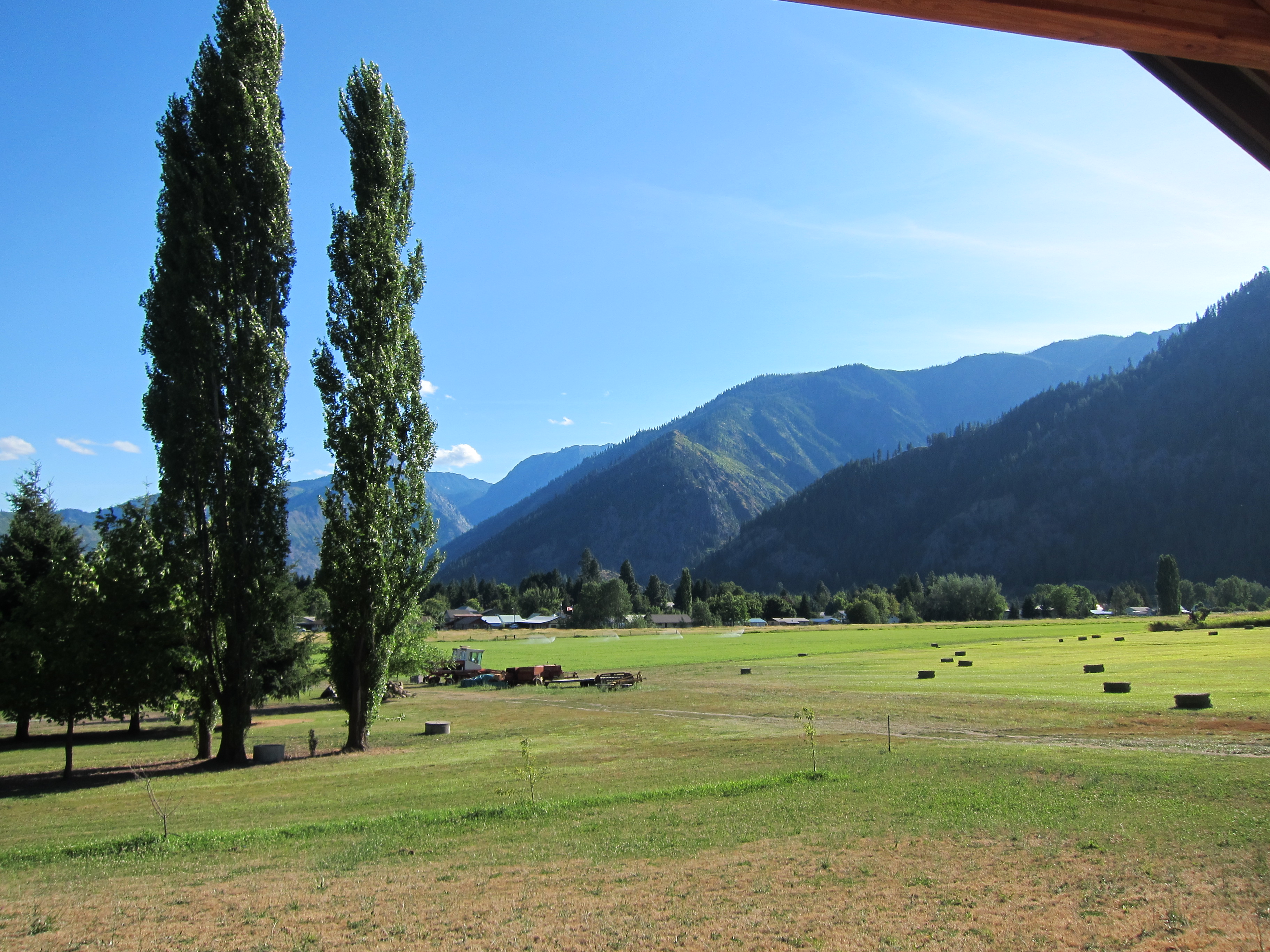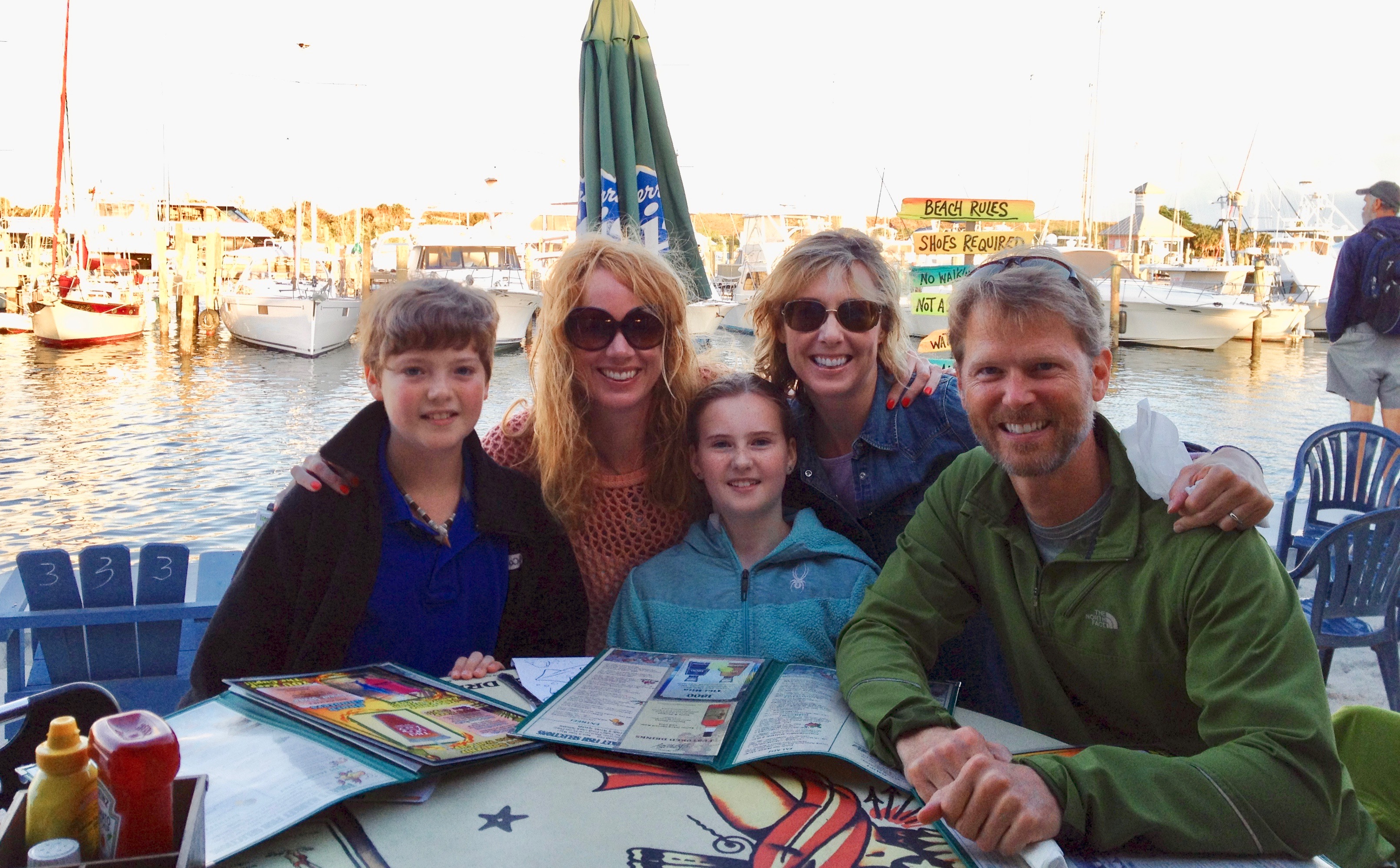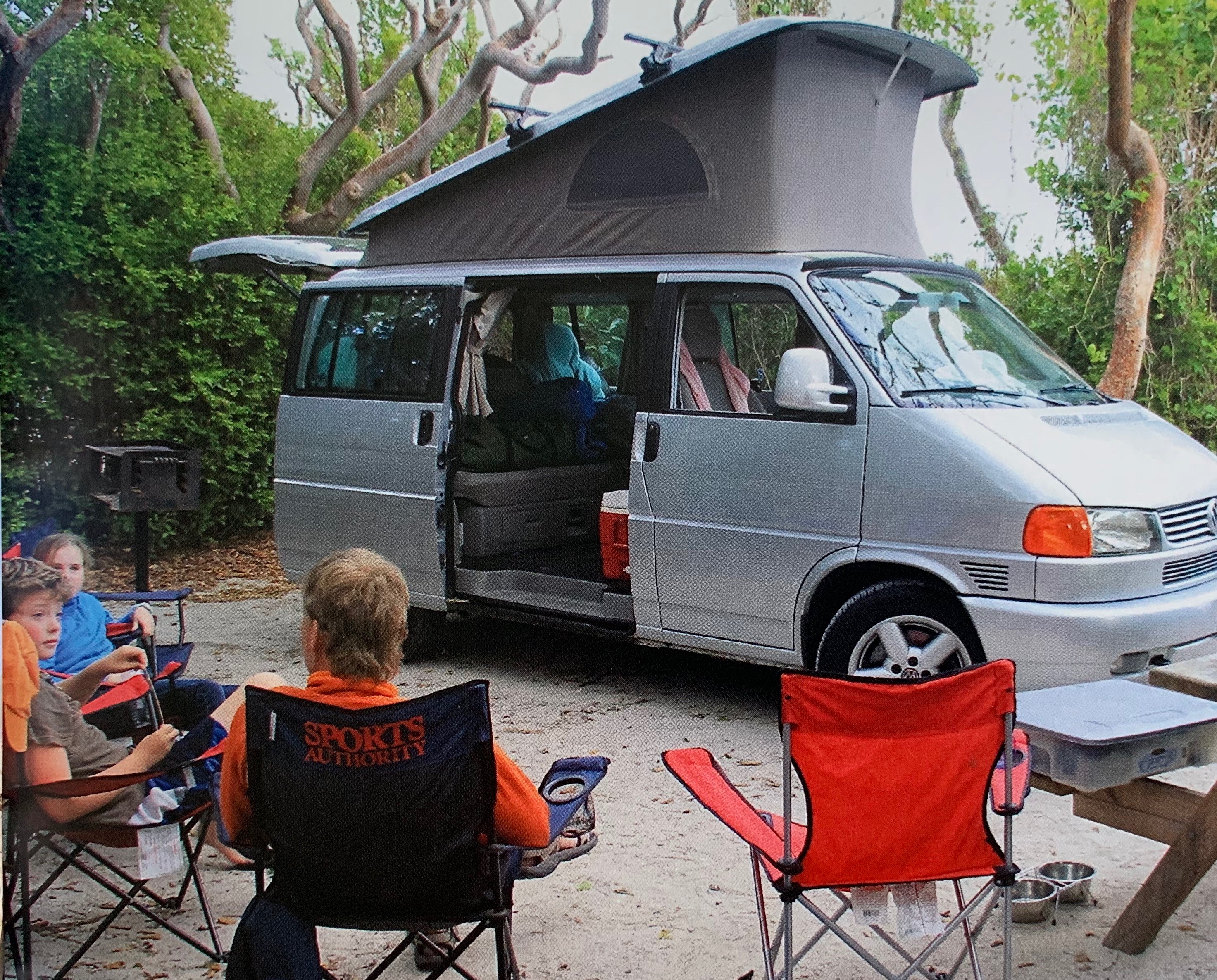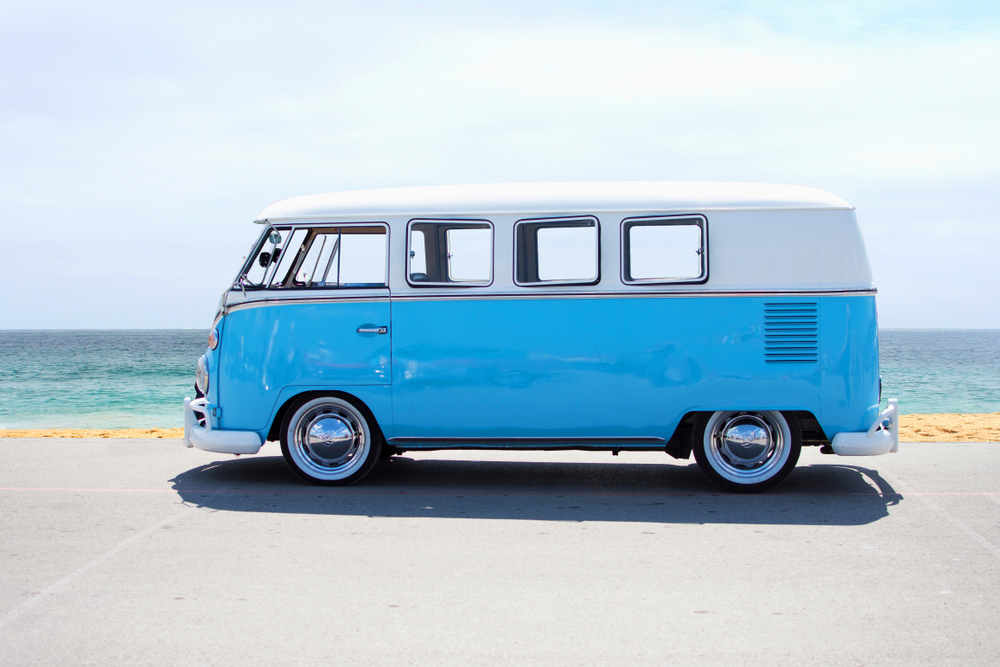A few years ago, my wife and I sold our house, our cars, and most of our possessions, bought a used VW camper van, took our 10 and 12 year-old kids out of school, and hit the road searching for more life meaning, fulfillment, and personal authenticity.
Despite having a loving family and plenty of career prospects, I jumped out of my life because I couldn’t face a future that lacked the meaning and purpose that I craved. I knew, or at least hoped, that there was more to life than what I was experiencing. I also knew that I couldn’t continue to try to find that “more” in the life that I had been living, because I was too embedded. I needed to let the patterns, values, expectations, and even people of my life subside, so that I could give my deepest self some physical and emotional space to emerge.
Our year on the road was amazing — easily one of the best years of any of our lives. We tightly bonded as a family. We had adventures that none of us will ever forget. And personally, I found the space I needed to commit to finding a new life direction despite the fears of the unknown, and the risks of stepping out of my professional life at such a relatively early stage.
That year on the road led to three insights that gave me ground rules for gaining the personal clarity to commit to not going back to the life I had previously lived, and for creating a more authentic approach to my future life.
Insight 1

The first insight struck me about six weeks into our trip. I was wrapping up our first full day in Leavenworth, WA, an idyllic alpine town in the Cascade Mountains, where my brother and his family live. That first day, following six weeks of travel through the great American West, I pulled out my laptop, found a seat on the porch overlooking a beautiful mountain vista, and decided to try to learn how to day-trade stocks from the moment the markets opened until the moment they closed.
I’m sure it was my fear of not working for the previous six weeks that provoked me to try to do it. But seriously, day-trade? On our year off? Overlooking a hay farm in the middle of the Cascades? What was I thinking?
At the end of the day I looked up from my screen, and with a sinking sense of regret, realized that I had spent this beautiful day staring at lines, dots, and numbers on a laptop screen rather than engaging with my wife, children, brother, sister-in-law, nieces, and nephew. I was so disappointed in myself for squandering what could have been a rich day of engagement and interaction with the people I love most in the world, and the beautiful nature all around me. And that’s when my first insight hit:
Can doesn’t mean should.
Just because I can do something doesn’t mean that I should do it. I could spend the days of our trip trading online and trying to make a few dollars, but should I? Was that the best use of this time? Was that what I really cared about most? Was that an expression of who my most authentic self was?
Or was I doing it merely because I could, and therefore I thought I should?
As these questions hit me, I realized how much of my life I’d spent acting on things merely because I could do them: my first company, my New York career, every subsequent company that I’d started since, the consulting engagements, the board seats, and most of the hours I’d spent working during my career on issues that appeared before me, but that I didn’t ultimately care about very much.
My work was not the result of passions, intentions, or concerns about the end product. It was simply the result of opportunities that presented themselves to me and that I thought I could do, so I did them because they seemed responsible, like what I was expected to do.
That day I felt convicted not just about my day of trading, but about much of the way I had handled my adult life. I had been occupied merely by what I could do, not by what arose from my values, beliefs, desires, strengths, aptitudes, intentions, or authentic cares.
This first insight — can doesn’t mean should — stuck with me over the following months and became a clarifying filter that provoked me to ask whether each opportunity that presented itself was merely something that I could do, or whether it was something more.
Can doesn’t mean should stopped me from day-trading away my life on the road, and when we finally decided to step off of the road and settle down again, it provided the crystal-clear clarity that stopped me from jumping back into a work life that was like the one I had lived before our travels.
Insight 2

The second insight came a few months (and 3,168 miles) later, as a direct result of the space that the first insight provided. We were in South Florida, and I was now dismissing most of my ideas about business and career because I could see them more critically.
But that left me with a new question: if can doesn’t mean should, then how do I know what I should do?
For me, answering this question was relatively easy. My second insight shifted the reference points of the word should from external sources, such as the expectations coming from society, culture, or even friends and family, to internal ones. By distancing myself from extrinsic expectations, I now had the emotional space to accept my second insight:
Should comes from care.
Many of my previous activities and commitments, whether they were personal, professional, or social, left me unfulfilled, and feeling like my life was a series of obligations to external “have-to’s,” even when they seemed like the right, responsible, or mature thing to do. The issue was that my motivations were not arising from my deepest senses of care. I needed to shift my orientation from being motivated by external opportunities to embracing my internal cares.
This was much easier said than done.
We are all conditioned to identify with the people, values, and cultural ways that surround us. I grew up in a business family, and had been a part of the business community for the previous 20+ years, so my primary default beliefs about what I should do were conditioned by a business orientation: I should be productive, efficient, diligent, successful, self-advancing, full-time employed… and the list goes on.
But all of these metrics felt like the opposite of what I actually cared about.
At that point, I didn’t care about being productive, efficient, and diligent; I cared about being creative, adventurous, and free to live out all of the other parts of me that were put on hold during my intense business years.
I didn’t care about success, self-advancement, or showing up to an office, I cared about self-exploration, self-expression, and interacting with people in ways that were intimate and honest — the opposite of what I had experienced in most of my years working in the worlds of startups, international corporations, finance, and strategy.
Of the three insights, this middle one — should comes from care — came most quickly, but was the hardest to work through. It’s so easy to say, “do what you love and you’ll never work a day in your life,” or “follow your bliss.” But how do you actually do it? And I don’t just mean, “how do you create a living out of what you love or care about?” I mean the harder question of, “how do you really know what you most deeply care about intrinsically,” especially after a lifetime of doing all the extrinsic should’s that we are acculturated to pursue?
I spent the second half of our year on the road, as well as the years immediately following our return, working through this harder question. It wasn’t easy, and there were not a lot of readily accessible resources to help me. But as someone who actually studied human meaning-making and purpose in graduate school, I possessed some tools that allowed me to self-navigate the question, and ultimately to begin building processes which helped me, and are now helping others, to navigate this question.
Insight 3

It was during these self-navigating years that I learned the third and final insight provoked by our year on the road:
Care means do.
Once I discovered what I cared about most deeply, I felt like I had no choice but to do it. Doing anything else, whether it was returning to my old industries and careers, or developing new opportunities because I could, would violate the sense of personal imperative I developed once I understood my deepest personal cares. Choosing to do anything other than living out my deepest cares would be a choice of self-abandonment, which would only reenforce the senses of alienation, unhappiness, and even despair that sent me out on the road in the first place.
My cares led me into a several-year investigation of the scientific research on how humans make meaning and develop life purpose. What I found in academic journals, classes, research reports, and textbooks was so empowering, and I cared about it so much, that I began focusing on it as my primary work.
I started by volunteering as a mentor to university students. I then put together a curriculum and taught a semester-long course on meaning and purpose at a major university. And today I am working with others on developing programs and other writings that leverage the science of meaning and purpose to help the world’s populations live more optimized lives.
Each of us has the opportunity to live a more optimized and fulfilling life if we filter out all of the distracting cans, if we orient our sense of should toward our intrinsic cares rather than extrinsic demands and expectations, and if we then do with our lives what we care about most deeply.
My path away from a former life of can, down into the depths of care, and back out again into a life of doing has not been easy or quick. But now that I am engaged in a life that is based on what I care about most, I am experiencing hopefulness, satisfaction, excitement, authenticity, and fulfillment (just like the science said I would).
These three insights — can doesn’t mean should; should comes from care; care means do — that were provoked by a year living in a VW van helped to change my life, and I’m guessing they can help others do the same.
Want to learn more about the science of meaning and purpose?
Download the free Purpose Primer ebook to learn more about how the science of Meaning And Purpose (MAP) relates to your personal search.
This article was originally published on March 9, 2019 in Medium.
Follow us here and subscribe here for all the latest news on how you can keep Thriving.
Stay up to date or catch-up on all our podcasts with Arianna Huffington here.


